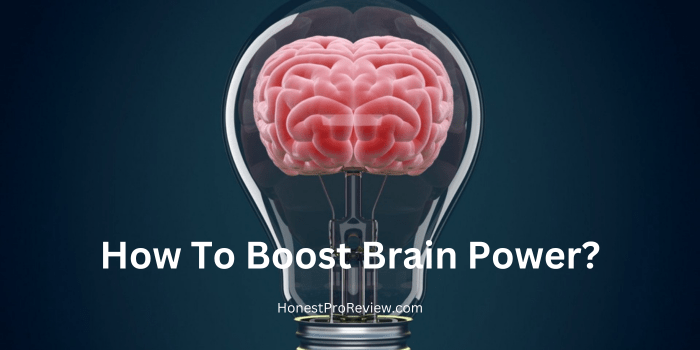Exploring Causes, Symptoms and Treatments of Insomnia

June 24, 2025 by Robert Dowling | Fact Checked by Karen | Medically Reviewed by Dr. Bruce
Exploring Causes, Symptoms and Treatments of Insomnia: Insomnia is a condition when you find it difficult to fall asleep. Insomnia leads to several health complications affecting your overall way of life. Usually, adults need average 7-9 hours of sleep every night and it varies according to needs. Good sleep improves your way of life and you will find it easy to focus on your daily works. Insomnia can be acute or chronic and you need to treatment to manage your sleep pattern. Acute insomnia lasts for a few nights while chronic insomnia may last for a few nights to months. People suffering from chronic insomnia get inadequate sleep due to which their overall well-being is hampered.
Learning About the Causes, Symptoms and Treatments of Insomnia

Initially, it’s important to get an idea of the insomnia symptoms:
- Trouble falling asleep
- Feeling dizzy during daytime
- Stay awake every night
- Feeling anxious or irritable during daytime
- Finding it difficult to focus on your works
- Difficulty remembering things
- Disruptions leading to accidents or other unexpected situations
Once you get familiar with insomnia symptoms you will learn whether you are experiencing insomnia. It’s time to consult a doctor who will analyze your symptoms and will let you know whether you have insomnia.
Read More: Sleep Revive Reviews
At what time you are experiencing difficulty falling asleep?
There are three patterns showing how your sleep cycle is hampered:
Initial Insomnia:
It’s the onset of insomnia when you are unable to fall asleep.
Middle Insomnia:
It’s a form which makes you awake in the middle of night you will fall asleep in the later time. It’s the most common type affecting almost two-thirds of people who are experiencing insomnia symptoms.
Late Insomnia:
People with this type wake up too early in the morning and can’t fall back asleep. You may feel dizzy late in the daytime and thus affects your overall lifestyle.
Daytime Effects of Insomnia
Insomnia has several daytime effects, which are mentioned below:
- Feeling tires or unwell making it difficult to focus on your works
- Difficulty in remembering things, thus affecting your way of life
- Thought process is affected and you will lose your creativity
- Delayed responses increasing risks while driving or cycling
- Mood changes such as irritability, anxiety and depression
- Disruptions in different social activities or difficulty performing your routine works
So, you need to learn how to overcome insomnia symptoms, thus you can restore your normal lifestyle.
Read More: How Does Diabetes Impact Sleep?
Useful Facts About Chronic Insomnia
Here, you will get an overview of the characteristics of chronic insomnia:
Frequency: Chronic insomnia makes you experience symptoms more frequently and thus it affects your overall performance.
Duration: Chronic insomnia symptoms last for at least 3 months and every night you will find it difficult to fall asleep.
Circumstances: Chronic insomnia makes it difficult to fall asleep despite you have time and a good environment and the positive vibes.
Now, you must visit a good doctor who will treat the underlying causes helping you live a better way of life. This way, you will enjoy better sleep that even improve your brain function.
Types of Insomnia
Now, you need to learn about the types of insomnia. Experts classify insomnia considering two categories:
Time:
Experts first come up with the short-term or acute insomnia. People with acute insomnia experience the symptoms for a few nights. Usually, a sudden life change or tragic incident leads to acute insomnia.
Cause:
Primary insomnia on it’s own and there are no underlying conditions. On the other hand, secondary insomnia is caused due to another condition such as a serious illness, stress and anxiety.
Doctors first learn whether you are suffering from a disease or other mental conditions like stress, anxiety or depression. So, you will receive treatments accordingly and gradually, there will be improvements in your symptoms.
How insomnia is affecting the society?
Nowadays, both acute and chronic forms of insomnia are affecting the society. Approximately, 1 out of 3 adults worldwide is experienced insomnia symptoms and about 10% of people are facing similar symptoms of insomnia. Now, you will find advanced treatments and it helps you live a better life free from worries.
Read Also: Best Mouthpieces for Snoring 2025
Causes of Insomnia
There are several causes of insomnia which are listed here:
Poor Sleep patterns
Bad sleep patterns lead to insomnia and it becomes difficult to fall asleep. Going to bed at different times, taking naps during daytime or using electronic devices before you get to sleep affects your sleep cycle.
Substance Abuse
Substance abuse such as consuming illicit drugs, alcohol etc. affects your brain function and you may find it difficult to manage your sleep patterns. It damages your brain cells due to which you will lose control over life.
Stress and Anxiety
Stress is one of the biggest causes of insomnia. Stress, anxiety and depression makes your brain function differently and thus your night sleep is affected. Hence, you will find it difficult to concentrate on daily works and gradually it lowers your confidence.
Severe Diseases
Some serious diseases such as heart disease, neurological disorder etc. can be the causes of insomnia. Hence, it’s important to treat the underlying cause and it helps you get enough night sleep. It helps you lead a better way of life and you will feel happier.
Negative Room Vibes
Negative vibes inside your room may be another factor causing insomnia. Make sure your room’s bed is clean and eliminate any noise inside the room ensuring that you fall asleep easily. This way, you can improve your sleep habits.
Life Changes
A sudden change in your life can be the reason of insomnia; however it may go with time. Adjusting to a new work schedule, changing your bedroom or bed may make feel disturbed due to which you will experience insomnia for a certain period.
Different Brain Chemistry
Some people have more active brains or different brain chemistry due to which they stay awake longer time during nights. You may consult a neurologist who will explain your brain functions and accordingly you can make lifestyle changes.
Overall, you get a clear view of the causes of insomnia and it’s time to learn how to get rid of this condition.
Read Also: VitalSleep Anti Snoring Mouthpiece Reviews
Insomnia Diagnosis
Now, you may be wondering how experts diagnose insomnia. There may be a combination of methods like your doctor may ask about your family history, sleep habits, symptoms etc. It helps the expert to make the correct diagnosis and thus you will live a happier life. Sometimes, doctors recommend some other tests to rule out other health conditions and it becomes easy to deal with the symptoms.
What tests can help in detecting insomnia?
Here are mentioned about the tests that help in detecting insomnia:
Sleep Apnea Testing
Sleep apnea testing involves an overnight sleep pattern analysis inside a lab. Also, you may do a home test and you will learn whether you have sleep apnea.
Multiple Sleep Latency Test
Multiple sleep latency tests are the ultimate option to measure how quickly you are falling asleep during the day. It helps in diagnose certain sleep disorders such as narcolepsy and hypersomnia. You need to take five naps in two-hour intervals and the expert places sensors on your face, head, and chin to sleep and REM sleep. Approximately, the test ends after 20 minutes if the person doesn’t fall asleep.
Actigraphy
It’s a non-invasive procedure where a device is used to measure a person’s rest cycles. A small watch-like device is worn on the wrist which records the accurate figures. The device features an accelerometer, clock and data storage unit measuring your movements and activities.
These tests help the doctor understand the cause of insomnia and also it becomes easy to track how your brain is functioning in the specific period. Hence, you will learn how treatments makes your life easier and your natural sleep cycle will be restored. Gradually, there will be improvements in your life and you will explore how sleep become the key factor for a healthier lifestyle.
How doctors treat insomnia?
There are different treatments for insomnia and it helps you explore a better way of life. Change in your sleep habits and medications can be the best treat options. The treatments which can help in treating insomnia are:
- Maintain same sleep patterns for every day. Good sleep hygiene helps you fall asleep easily and thus you will live a happier life.
- Some medications may help you fall asleep quickly and doctors will suggest medicines which won’t cause addiction.
- Next, it’s important to take care of mental health which helps you deal with insomnia.
Overall, you get an idea of the treatments and how can deal with insomnia.
Brief View of the Types of Drugs
Here is a quick view of the types of drugs helping you fall asleep:
Sedative Drugs
These drugs lower your nerve excitements enabling you fall asleep quickly. Hence, you will enjoy a good night sleep and every morning will be happier.
Hypnotic Drugs
Hypnotic drugs make you feel sleepy and thus it becomes to manage your sleep cycle. This way, you will learn how the drugs give you confidence to perform well.
Final Thoughts
Finally, it’s time to restore your usual sleep cycle and you can give life a new start. A doctor helps you get rid of the symptoms and you will explore life in a new way.






